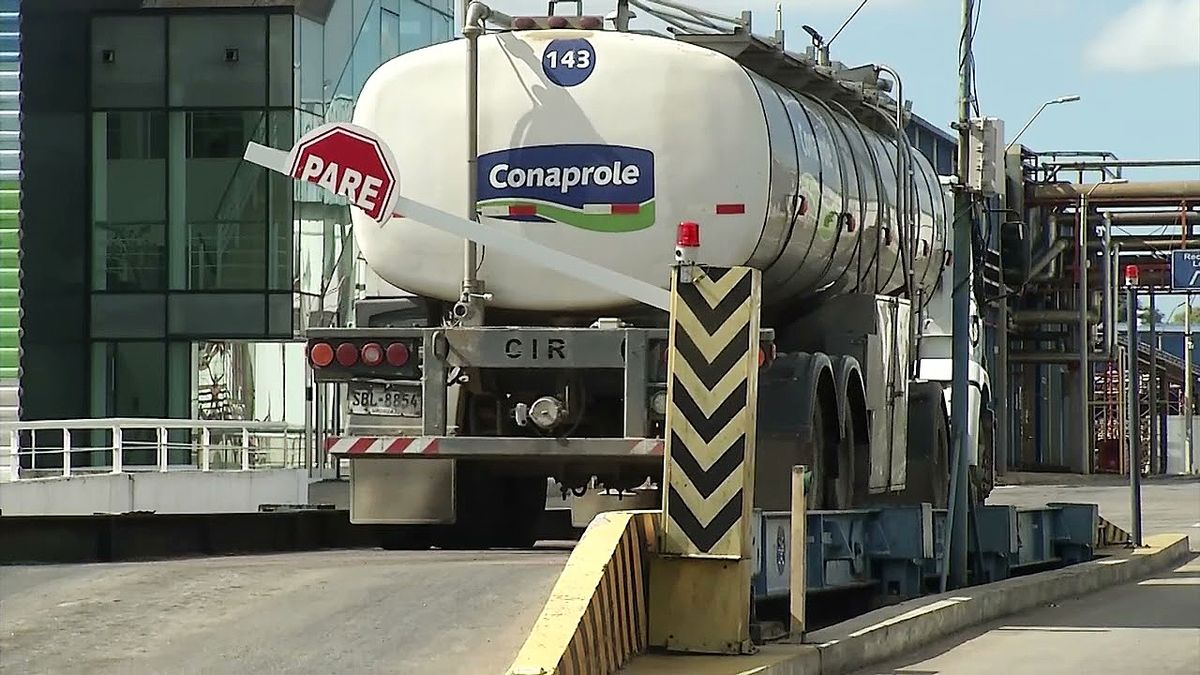The first quarter of dairy sector perceived ups and downs in its year-on-year comparison, according to data from the National Milk Institute (Inale), while exports of milk powder decreased by 8%, those of skimmed milk powder increased by 20%; Meanwhile, cheese exports fell by 2%.
With a total invoiced of 187 million dollars so far this year, exports fell 17%. This is due to the drop in billing of the butter for 27% less, represented by 13.5 million dollars. Meanwhile, powdered milk turnover also decreased: whole milk decreased by 17% (with 117 million dollars invoiced) and skim milk decreased by 1% with 12 million dollars invoiced. The cheeses, For their part, they also suffered a drop of 6% with 30.2 million dollars invoiced.
In terms of prices, a drop was also perceived in all products when compared to the same quarterly period (January-March) last year: whole milk powder with 10% less, the skimmed with 18% and the butter and cheeses with 6% and 4%, respectively.
However, if the prices of March of this year are compared with those of December 2023, an increase in the whole milk powder by 5% (becoming worth 3,446 dollars per ton) and the butter by 17%, becoming worth $5,330 per ton. However, milk prices in skim powder and the cheeses showed a decrease of 3% and 5%, respectively.
Conaprole, concerned about the lobby in Brazil
Being Uruguay the main exporter of milk powder Brazil, from the National Cooperative of Milk Producers (Conaprole) show their concern regarding the repeated intentions of Brazilian businessmen to block imports of foreign dairy products, with the aim of promoting the consumption of national products.
A week ago, the government of Brazil, specifically that of the department of Paraná, decided to eliminate the exemption from a tax on imported dairy products. The measure affects the milk powder and to mozzarella cheese imported through the revocation of the exemption of Tax on the Circulation of Goods and Services (ICMS).
The measures respond to the high level of imports of these products that directly affects the national industry of that country. In this way, imported milk powder and mozzarella will now be taxed at 7% of the ICMS, the lowest rate allowed because they are classified as basic food products, which are prohibited from being taxed at the full 19.5% rate.
On the other hand, the benefit of the alleged credit was taken away ICMS of 4%, a kind of tax incentive, with the objective of preventing the amount from being deducted from other credits of the ICMS. In addition, the government announced that it intends to regulate imports from member countries of the Mercosur.
Taking this into account, and the previous crossings between the Minister of Livestock, Agriculture and Fisheries (MGAP), Fernando Mattos, in the face of repeated complaints from the government and the dairy sector, from Conaprole show intrigue. “We see with great concern all the lobbying and obstacles that Brazil is imposing on the dairy trade,” the director of Tardáguila told Informe Tardáguila. Conaprole, Daniel Laborde.
Source: Ambito




